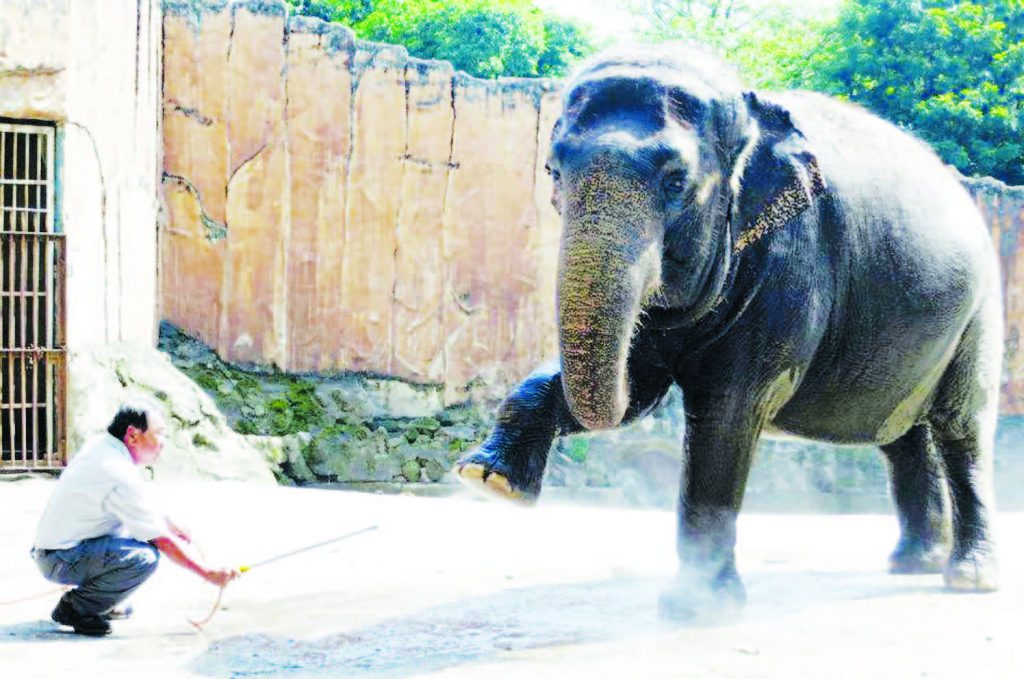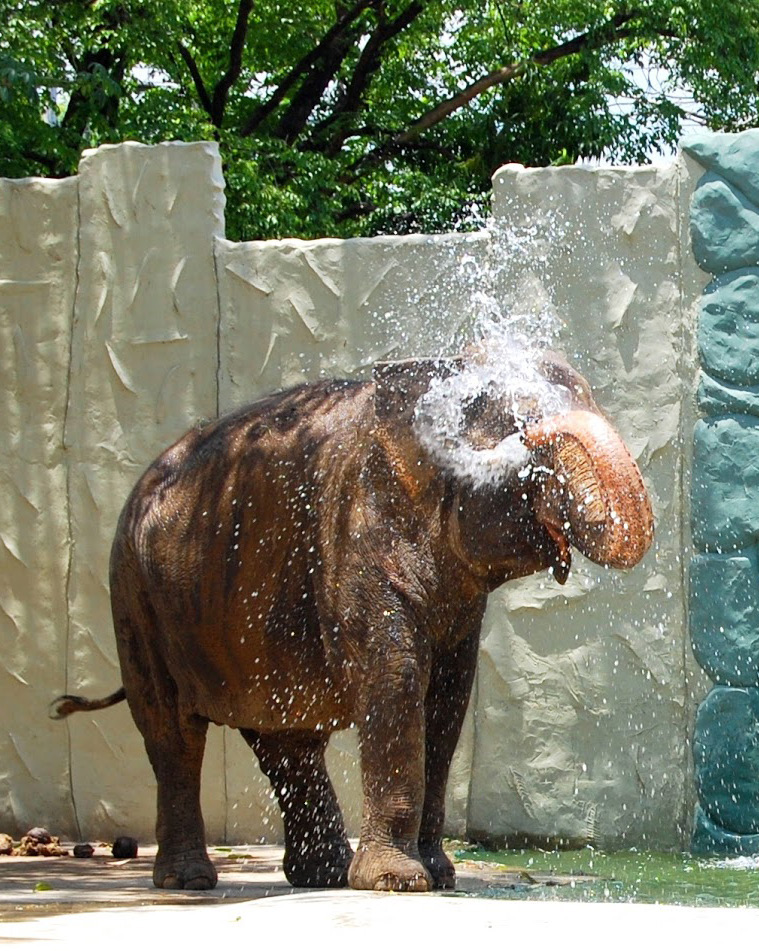Elephants have a symbolic importance in culture, religion, and economy all throughout the world, especially in Asia. Many believe they are the symbol of strength, intelligence, and power. And for years, the Philippines has been home to one majestic being: Maali, a 41-year-old female elephant.
“Lady of the World”
“[They say the name] Maali [comes from the] Sri Lankan [word that means] ‘Lady of the World,’” said Marcelino Tasiong, a foreman who worked at the Manila Zoo for 28 years. True to her name, Maali was a sight to behold: she was a majestic lady worthy of love and care.
Just like many Asian elephants, Maali has dark skin, with depigmented patches on her face, belly, ears, and trunk. She weighs about 8,000 pounds but is shorter and looks wider than others.

According to Tasiong, Maali was rescued by caretakers from the Pinnawala Elephant Orphanage — the biggest place in Asia that caters to cater to orphaned, abandoned, and wild Asian elephants — after her mother died due to natural causes in Sri Lanka.
In 1980, the Sri Lankan government decided to donate three-year-old Maali to then First Lady Imelda Marcos. Maali was taken to the Malacanang Palace to pay the Marcos family a courtesy visit before she was transported to Manila Zoo.
Though elephants were not usually territorial, Shiba, the old female elephant rescued from the circus residing at the zoo at the time, found it hard to accept Maali.
“Sabi nila nung una daw, takot pa yang si Maali. May time kasi na sinama siya dun sa adult, eh medyo nagulat si Shiba kaya medyo nahampas niya ng onti si Maali. (They said Maali was scared in the beginning. When she joined Shiba, the latter was caught off-guard and hit her),” shared Tasiong.
When Shiba eventually died, Maali could finally roam on her own, trying to get used to her new home.
Still a kid at heart
She has lived in the zoo for four decades now, her enclosure defined by its concrete floor and walls painted with trees. Keepers give her balls and tires to play with, while running water is available at her own disposal.
Tasiong, who has been Maali’s keeper since 1990, said Maali has always been a happy elephant and remains a kid at heart.

“Mula nung bata pa siya, may kakulitan talaga si Maali. (Since she was young, she’s always had a naughty streak),” Tasiong said. “Noon, gusto ko na sana sumuko. Nag-iipon ako ng dumi tapos [binangga] niya ako minsan. Pinagtiyagaan ko at nasanay na rin ako. (In the past, I wanted to give up. I was collecting her poop, then she deliberately bumped into me. I persevered until I got used to it.)”
Tasiong said almost all zoo keepers visit Maali and play with her every day. Even though she’s the only elephant in the zoo, her keepers want to make sure she gets the companionship she need. Besides playing with the zoo crew, Maali loves to interact with her visitors by letting them feed her. She consumes a lot of food in a day, including grass, plants, fruits, and vegetables. “Medyo matanda na si Maali, so ang binibigay na lang namin (Maali is getting old, so what we give her are) grass, fruits, camote or bread,” said Manila Zoo veterinarian Dr. Joseph Pedron.
Maali’s favorite? Mangoes!
Unique Maali
When officers from the South East Asian Zoos Association came to Manila Zoo, they described Maali as “unique.”
“Sabi ng trainers mula sa ibang bansa, kakaiba daw yung ugali ni Maali. Para daw bata na hindi madalas nakikita sa ibang mga elepante. Meron din siyang mga body language na hindi rin karaniwang nakikita sa ibang elephants. (Foreign trainers said Maali’s behavior was different. They said she acted like a child, something they didn’t often see with other elephants. Her body language also isn’t common in other elephants),” said Tasiong.

What was fascinating about Maali was that she was not trained by anyone; on her own, she learned how to communicate with her keepers and maintain a close bond with them.
“May mga times na nagkaroon siya ng kabag, so masakit ‘yon. Ang ginagawa ni Maali, lumalapit siya kay [keeper] Noel na para bang nagsusumbong. (There were times she had dyspepsia, which was painful. She would approach [keeper] Noel, as if to tell him what was wrong),” added Pedron.
In Russian, Maali means “the blessed.” Maybe that was why she was named Maali; after all, her presence in many people’s lives was a blessing in itself, ultimately making her a “Lady of the World.”
This appeared in Animal Scene magazine’s April 2019 issue.






